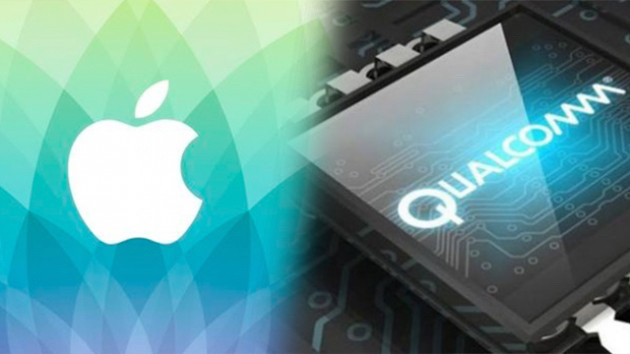Yesterday, there was a report that Apple is designing iPhones and iPads for next year that would jettison the chipmaker’s components. Modem chips from Intel and possibly MediaTek would be placed in the devices instead as Qualcomm is reportedly withholding software critical to testing its chips in Apple prototypes, according to the Wall Street Journal.

Not so fast, says Canaccord. The investment bank’s analyst, Mike Walkley, doesn’t think Apple can afford to “design out” Qualcomm, at the moment, especially given the impending arrival of 5G wireless services in the coming years. Here’s what he tells Barron’s:
“The Wall Street Journal reported Apple may be developing a next-generation iPhone roadmap excluding Qualcomm thin modems, a business we estimate at roughly $1.5-$2.0B in revenue (depending on iPhone volumes) at a total of roughly $15/phone. While we believe Apple and Intel have long-term unchanged aspirations to work together on iPhone chip manufacturing that could threaten Qualcomm in the very long term, we believe Apple shifting away from Qualcomm’s modems in 2018 or 2019 is very unlikely because: 1) Intel has yet to ship a volume modem on its own 14nm silicon; 2) Intel has yet to ship a volume CDMA-based modem required for Verizon, Sprint, China Telecom and other carriers; and 3) we believe excluding Qualcomm ahead of 5G trials and technology developments is risky for Apple. We view the WSJ story as more of a negotiating tactic from Apple than a credible near- term threat to QCT. In fact, we believe Qualcomm is well ahead of the competition for 5G and anticipate 5G capable devices should start shipping in 2019 and would assume Apple would be a leading OEM to adopt 5G early.”
In January, Apple filed a lawsuit again Qualcomm, the world’s dominant supplier of baseband processors, alleging the chip supplier demanded unfair terms for its technology. The same month, the Federal Trade Commission filed a complaint in federal district court charging Qualcomm with using anticompetitive tactics to maintain its monopoly in the supply of a key semiconductor device used in cell phones and other consumer products.
However, Qualcomm denies the allegations and says Apple wouldn’t have an iPhone business if it weren’t for fair licensing of the company’s essential tech. The company claims it went out of its way to offer alternative licensing (which Apple rejected), and that, in suing Qualcomm, Apple is motivated by reducing the cost to make iPhones.
